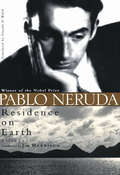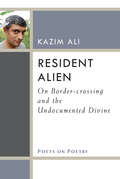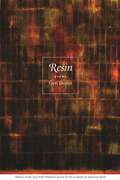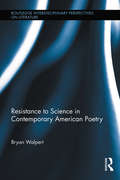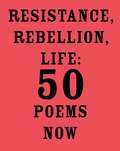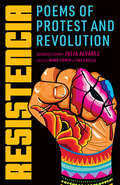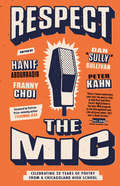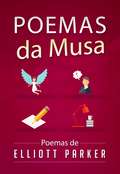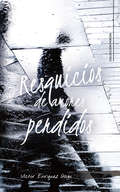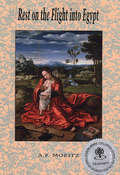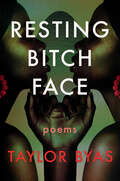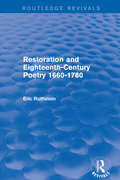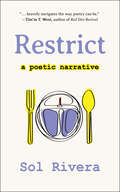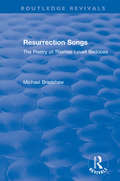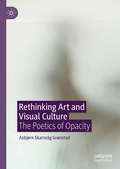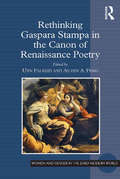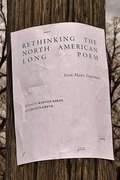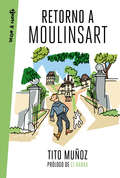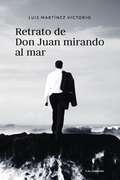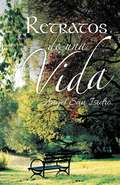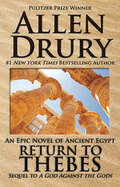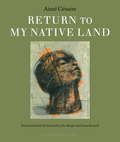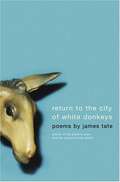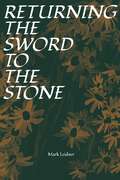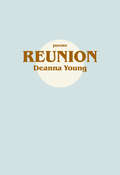- Table View
- List View
Residence on Earth
by Pablo Neruda Jim Harrison Donald D. WalshNew Directions celebrates the Pablo Neruda Centennial. In celebration of the 100th anniversary of Pablo Neruda's birth, New Directions is pleased to announce the reissue of a classic work in a timeless translation by Donald D. Walsh and fully bilingual. Residence on Earth is perhaps Neruda's greatest work. Upon its publication in 1973, this bilingual publication instantly became "a revolution... a classic by which masterpieces are judged" (Review). "In Residence on Earth," wrote Amado Alonso, "the tornado of fury will no longer pass without lingering, because it will be identified with [Neruda's] heart."
Resident Alien: On Border-crossing And The Undocumented Divine
by Mohammed Kazim AliKazim Ali uses a range of subjects--the politics of checkpoints at international borders; difficulties in translation; collaborations between poets and choreographers; and connections between poetry and landscape, or between biotechnology and the human body--to situate the individual human body into a larger global context, with all of its political and social implications. He finds in the quality of ecstatic utterance his passport to regions where reason and logic fail and the only knowledge is instinctual, in physical existence and breath. This collection includes Ali's essays on topics such as Anne Carson's translations of Euripides; the poetry and politics of Mahmoud Darwish; Josey Foo's poetry/dance collaborations with choreographer Leah Stein; Olga Broumas' collaboration with T. Begley; Jorie Graham's complication of Kenneth Goldsmith's theories; the postmodern spirituality of the 14th century Kashmiri mystic poet Lalla; translations of Homer, Mandelstam, Sappho, and Hafez; as well as the poet Reetika Vazirani's practice of yoga. "Ali has a vibrant and generous personality that lets one hear the inner music that makes us remember what it is to be human. " --Painted Bride Quarterly
Resin: Poems (Walt Whitman Award of the Academy of American Poets)
by Geri DoranIn poems of quiet force, Geri Doran maps the fragility of human connection and the irreducible fact of grief. From the communal ruptures of Chechnya and Rwanda to the personal dislocations that attend great loss, Resin weighs frailty against responsibility, damage against the desires of the heart. For the poet, a factory fire in late-nineteenth-century Portland becomes a tool for precise knowing: "The phases of wood are a means / of dead reckoning: burn what is built / and gauge your passage / by what is lost." Even in so quotidian an act as the planting of potatoes, Doran's sure, meticulous, and carefully calibrated lines reveal the intensity of our yearnings: "What carried us from year to year was yield: / potatoes in, potatoes out, like rowing." Variously plaintive, passionate, intuitive, and serious, the voice in Resin tells how the natural world, in both its wildness and regularity, expresses and mediates human longing.You entered me like migraine, leftlike migraine a private vacancy.The darkness outside is great and wild.Blue plums falling from an old treedemand we believe in wildness,fallingness. What's the matter is memory,shrivel and tart. How in this sweetaftermath of everything the mindshould settle on plums (blue plums!)is one of the mysteries. That Godand my window-blinds should conspireto refract the light to look like plums.Out in the wild nothing. -- from "Blue Plums"
Resistance to Science in Contemporary American Poetry (Routledge Interdisciplinary Perspectives on Literature)
by Bryan WalpertThis book examines types of resistance in contemporary poetry to the authority of scientific knowledge, tracing the source of these resistances to both their literary precedents and the scientific zeitgeists that helped to produce them. Walpert argues that contemporary poetry offers a palimpsest of resistance, using as case studies the poets Alison Hawthorne Deming, Pattiann Rogers, Albert Goldbarth, and Joan Retallack to trace the recapitulation of romantic arguments (inherited from Keats, Shelly, and Coleridge, which in turn were produced in part in response to Newtonian physics), modernist arguments (inherited from Eliot and Pound, arguments influenced in part by relativity and quantum theory), and postmodernist arguments (arguments informed by post-structuralist theory, e.g. Barthes, Derrida, Foucault, with affinities to arguments for the limitations of science in the philosophy, sociology, and rhetoric of science). Some of these poems reveal the discursive ideologies of scientific language—reveal, in other words, the performativity of scientific language. In doing so, these poems themselves can also be read as performative acts and, therefore, as forms of intervention rather than representation. Reading Retallack alongside science studies scholar Karen Barad, the book concludes by proposing that viewing knowledge as a form of intervention, rather than representation, offers a bridge between contemporary poetry and science.
Resistance, Rebellion, Life: 50 Poems Now
by Amit MajmudarPoets on the march: 50 crucial poems written in response to the current political climate, selected and introduced by the Ohio Poet Laureate—and son of immigrants—Amit Majmudar. In a political atmosphere where language and even meaning itself are continually under threat, poetry has a critical role to play. And our poets have been responding—in the streets and at their desks, demanding a full accounting from themselves and from their nation. Majmudar's elegant introduction to these vital poems reminds us that "false stories take a lot of killing because they are made of language. Because they are made of language, though, they can be killed." From Solmaz Sharif and Eileen Myles to Kevin Young and Juan Felipe Herrera, American poets of diverse styles and strategies have contributed their truths: scenes from the front lines of resistance, and from the interior of our collective conscience. A final cento by Majmudar—a poem including at least one line or phrase from each of the poems in the volume—celebrates the robust multiplicity of voices in this book and in America now.
Resistencia: Poems of Protest and Revolution
by Mark Eisner and Tina Escaja“To read these poems is to be reminded again and again of our true allegiance to each other.” —from the introduction by Julia Alvarez With a powerful and poignant introduction from Julia Alvarez, Resistencia: Poems of Protest and Revolution is an extraordinary collection, rooted in a strong tradition of protest poetry and voiced by icons of the movement and some of the most exciting writers today. The poets of Resistencia explore feminist, queer, Indigenous, and ecological themes alongside historically prominent protests against imperialism, dictatorships, and economic inequality. Within this momentous collection, poets representing every Latin American country grapple with identity, place, and belonging, resisting easy definitions to render a nuanced and complex portrait of language in rebellion. Included in English translation alongside their original language, the fifty-four poems in Resistencia are a testament to the art of translation as much as the act of resistance. An all-star team of translators, including former US Poet Laureate Juan Felipe Herrera along with young, emerging talent, have made many of the poems available for the first time to an English-speaking audience. Urgent, timely, and absolutely essential, these poems inspire us all to embrace our most fearless selves and unite against all forms of tyranny and oppression.
Respect the Mic: Celebrating 20 Years of Poetry from a Chicagoland High School
by Tyehimba Jess Franny Choi Hanif Abdurraqib Peter Kahn Dan Sully" SullivanAn expansive, moving poetry anthology, representing 20 years of poetry from students and alumni of Chicago's Oak Park River Forest High School Spoken Word Club."Poets I know sometimes joke that the poetry club at Oak Park River Forest High School is the best MFA program in the Chicagoland area. Like all great jokes, this one is dead serious." -Eve L. Ewing, award-winning poet, playwright, scholar, and sociologist For Chicago's Oak Park and River Forest High School's Spoken Word Club, there is one phrase that reigns supreme: Respect the Mic. It's been the club's call to arms since its inception in 1999. As its founder Peter Kahn says, "It's a call of pride and history and tradition and hope." This vivid new collection of poetry and prose -- curated by award-winning and bestselling poets Hanif Abdurraqib, Franny Choi, Peter Kahn, and Dan "Sully" Sullivan -- illuminates just that, uplifting the incredible legacy this community has cultivated. Among the dozens of current students and alumni, Respect the Mic features work by NBA champion Iman Shumpert, National Youth Poet Laureate Kara Jackson, National Youth Poet Laureate Kara Jackson, National Student Poet Natalie Richardson, comedian Langston Kerman, and more.In its pages, you hear the sprawling echoes of students, siblings, lovers, new parents, athletes, entertainers, scientists, and more --all sharing a deep appreciation for the power of storytelling. A celebration of the past, a balm for the present, and a blueprint for the future, Respect the Mic offers a tender, intimate portrait of American life, and conveys how in a world increasingly defined by separation, poetry has the capacity to bind us together.
Resposta Da Musa: Poemas De Michael La Ronn
by Michael La Ronn Mafalda PintoNesta imaginativa coleção de poemas, Michael La Ronn obedece à sua musa e cria coloridas experiências de admirável delicadeza. São destemidos, nada deixam por explorar e não desperdiçam palavras. Esta diversificada coleção está ao nível das obras em prosa de La Ronn, distinguindo-o como um importante poeta da geração do milénio. CONVOCADOS Que luz é esta, que enche o céu suburbano? O que é este verde cintilante que faz a cintura de Órion brilhar num fogo rápido? Porque desce como neblina etérea, roçando as telhas das casas, transformando as janelas em microcosmos esmeralda? Tu não sabes, mas assim que desça sobre ti, vão soltar-se pequenas bolas, a vizinhança vai dançar, cadeados brilhantes vão abrir-se e surpreender toda a gente que dorme. Não sabes porquê, mas sabe bem enquanto pequenos dedos de luz te levantam do chão, te exaltam em direção a uma espiral lenta, nas estrelas. Transbordas de êxtase e dizes finalmente, vieste à colónia de olhos que se juntou à volta da mesa de operações onde foste colocado.
Resquicios de amores perdidos
by Víctor Enríquez Gago¿Necesitas frases bonitas para tus redes sociales? ¡Aquí puedes encontrarlas! Aunque no seas un gran amante de los libros o de la lectura, esta obra puede interesarte. Este librito va dirigido para todas aquellas personas que en algún momento de su vida han sentido y sufrido por amor. Estas poesías pretenden emocionarte y llamar a tus recuerdos. Sentir sea lo que sea nos mantiene vivos.
Rest on the Flight into Egypt
by A. F. MoritzShortlisted for the 2000 Governor General's Award for Poetry From the outskirts of the fevered empire, and the embers that were its heart, Moritz sings us to our selves -- our failures, our cruelties, our stupidities, and beauty which even now astonishes and leaves us breathless. Genuine political poetry is immensely difficult. Moritz succeeds, not because his list of atrocities is longer or more shocking, but because his vision is underwritten -- not whitewashed – by an ecstatic lyricism that knows evanescence is the only enduring truth.
Resting Bitch Face: Poems
by Taylor ByasAn Audacious Book Club Pick The author of the award-winning national bestseller I Done Clicked My Heels Three Times returns with a poetry collection that transforms the Black female speaker from object, artistic muse, and victim to subject, critic, and master of her storyResting Bitch Face is a book for women, for Black women, for lovers of art and film criticism, and for writers interested in work that finds a middle ground between poetry and prose. Taylor Byas uses some of our most common ways of &“watching&” throughout history (painting, films, sculpture, and photographs) to explore how these mediums shape Black female subjectivity.From the examination of artwork by Picasso, Gauguin, Sally Mann, and Nan Goldin, Byas displays her mastery of the poetic form by engaging in intimate and inventive writing. Fluctuating between watcher and watched, the speaker of these poems uses mirrors and reflections to flip the script and talk back to histories of art, text, photography, relationships, and men. From Polaroids to gesso primer to sculpture, Byas creates a world in which the artist calls out and the muse responds. For not only does she enter the world of the long-revered classic artist, but she also infuses her poems with such iconic pop culture works as The Joker, WandaVision, and Last Tango in Paris.
Restoration and Eighteenth-Century Poetry 1660-1780 (Routledge Revivals)
by Eric RothsteinRestoration and Eighteenth-Century Poetry 1660-1780, originally published in 1981, considers poetry written between 1660 and 1780, a period which, although largely recovered from its nineteenth-century reputation, still attracts widely varying critical responses. Abandoning the old labels such as ‘neoclassicism’, ‘romanticism’ and ‘sensibility’, the author focuses on descriptions of genres and their formal elements and traces the broader patterns of literary and historical change running through the period. Eric Rothstein describes different poetic modes- panegyric, satire, pastoral and topographical poetry, the epistle, and the ode- to suggest their aesthetical possibilities as well as their process of change. He also considers style and the uses of the past, topics which have often caused particular problems for the students of the period. What becomes clear is the extraordinary originality, flexibility and power with which Restoration and eighteenth-century poets handles the stylistic assumptions and the body of poems they inherited and employed in their own works.
Restrict: A Poetic Narrative
by Sol RiveraA powerful work of poetic narrative fiction, Restrict is the raw yet resonant story of a teenage girl's coming of age in a world that cares more about her weight than her mental health.Told from the perspective of a young woman who has abandoned her own name to distance herself from the emotional trauma of growing up, Little Girl&’s story is a modern examination of eating disorders, body image, puberty, and self-worth. And as the pressure to diet starts to become too much, the question faced by Little Girl is this: how can she ever experience self-love in a world focused solely on her appearance?Created by teenage author Sol Rivera, Restrict is her powerful and cathartic tale of a struggle shared amongst teenagers. This poetry collection serves as a light on the journey of self-discovery… something which too many have been denied.
Resurrection Songs: The Poetry of Thomas Lovell Beddoes (Routledge Revivals)
by Michael BradshawThis title was first published in 2001. Thomas Lovell Beddoes (1803-49) was a powerful poet of the English Romantic period, who has been and is still strangely neglected by critics. His macabre blank verse dramatic writings and his delicately balanced lyrics have both won ardent admirers such as Browning, Gosse, Pound and Christopher Ricks. Yet there are formal and generic problems in Beddoes's writings which continue to marginalize him as merely an eccentric, and the canon of Romanticism seems to have found no place for him.
Rethinking Art and Visual Culture: The Poetics of Opacity
by Asbjørn Skarsvåg GrønstadThis is the first book to offer a systematic account of the concept of opacity in the aesthetic field. Engaging with works by Ernie Gehr, John Akomfrah, Matt Saunders, David Lynch, Trevor Paglen, Zach Blas, and Low, the study considers the cultural, epistemological, and ethical values of images and sounds that are fuzzy, indeterminate, distorted, degraded, or otherwise indistinct. Rethinking Art and Visual Culture shows how opaque forms of art address problems of mediation, knowledge, and information. It also intervenes in current debates about new systems of visibility and surveillance by explaining how indefinite art provides a critique of the positivist drive behind these regimes. A timely contribution to media theory, cinema studies, American studies, and aesthetics, the book presents a novel and extensive analysis of the politics of transparency.
Rethinking Gaspara Stampa in the Canon of Renaissance Poetry (Women and Gender in the Early Modern World)
by Unn Falkeid Aileen FengDespite the fact that Gaspara Stampa (1523?-1554) has been recognized as one of the greatest and most creative poets and musicians of the Italian Renaissance, scholarship on her work has been surprisingly scarce and uncoordinated. In recent years, critical attention towards her work has increased, but until now there have been no anthologies dedicated solely to Stampa. Rethinking Gaspara Stampa in the Canon of Renaissance Poetry aims to set a foundation for further Stampa studies by accounting for her contributions to literature, music history, gender studies, the history of ideas, philosophy, and other areas of critical thought. This volume brings together an international group of interdisciplinary scholars who employ varied methodologies to explore multiple aspects of Stampa’s work in dialogue with the most recent scholarship in the field. The chapters emphasize the many ways in which Stampa’s poetry engages with multiple cultural movements of early modern Italy and Europe, including: Ficinian and Renaissance Neoplatonism, male-authored writing about women, Longinus’s theory of the sublime, the formation of writing communities, the rediscovery of Aristotle’s writings, and the reimagined relation between human and natural worlds. Taken as a whole, this volume presents a rich introduction to, and interdisciplinary investigation of, Gaspara Stampa’s impact on Renaissance culture.
Rethinking the North American Long Poem: Form, Matter, Experiment (Recencies Series: Research and Recovery in Twentieth-Century American Poetics)
by Ridvan Askin and Julius GreveFor centuries, critics, poets, poet-scholars, and philosophers have either openly proclaimed or tacitly assumed the long poem as the highest expression of literary ambition and excellence. Rethinking the North American Long Poem focuses on the North American variant of this notorious form—notorious because of its often forbidding and difficult character, particularly with respect to the dialectics of content and form, aesthetics and politics, matter and genre. In nine essays and a contextual introduction, the editors and contributors scrutinize seminal long poems by North American writers, including Walt Whitman’s “Song of Myself,” Ezra Pound’s The Cantos, Muriel Rukeyser’s The Book of the Dead, and Charles Olson’s The Maximus Poems. They also explore recent efforts that have redefined or reopened the case of the long poem, including Rachel Blau DuPlessis’s Drafts, M. NourbeSe Philip’s Zong!, and Claudia Rankine’s Citizen. Taking the categories of form, matter, and experiment as frames of conceptual reference, the book examines the ways in which material and immaterial aspects of literary practice and the philosophically and politically inscribed duality of experience and experiment are negotiated in and by North American long poems from the nineteenth century to the present.
Retorno a Moulinsart
by Tito MuñozTito Muñoz, un poeta excelente que además ha escrito canciones para artistas tan relevantes como Serrat o Ruibal, publica ahora en Verso&Cuento. Estas páginas son una invitación a pasear en pantalón corto o con el uniforme de las teresianas y una tirita en la rodilla por el paisaje de la infancia, los primeros besos y las fotografías de veranos antiguos, rumbo al sótano de Moulinsart, donde se conserva el tesoro de la memoria trazado en línea clara. Con una mirada cínica, callejera y sin concesiones, Tito Muñoz se recrea en la belleza de la invención con el firme propósito de, como recomendaba Ángel González, mantener sucia la estrofa y escupir dentro. Así que, ¡mil rayos, marinero de agua dulce, bachi-bazuk de los Cárpatos!, abre el libro por donde caiga y deja que la poesía de sus páginas te posea y haga cosquillitas en tus vísceras. Reseña:«En este libro, Tito nos va dando una de cal y otra de arena sin hacer apenas aspavientos, sin despeinarse, sin esfuerzo aparente; saca del sombrero el imaginario de la niñez y, cuando te descuidas, esboza la decadencia del pesar de los días o le da la vuelta a la sonrisa huyendo de los sueños».Fragmento del prólogo de El Kanka
Retrato de Don Juan mirando al mar
by Luis Martínez VictorioUn don Juan tradicional y nuevo, grotesco y heroico; una identidad «líquida», es decir, actual. Don Juan, como todo personaje literario que trasciende la ficción para proyectarse en la realidad social y cultural, está sujetoa revisiones periódicas que actualizan su presencia y su influjo. <P><P> Retrato de don Juan mirando al mar traslada a don Juan al siglo XXI, con el bagaje histórico que lo acompaña y con una variedad de registros y voces que reflejan sus múltiples manifestaciones. A través de esta original narración en sonetos, donde se compagina la intensidad del fragmento y la fluidez de la trama, la sátira y la épica, don Juan se enfrenta al dilema ético y al deseo de redención en un mundo zaherido por la injusticia social. <P><P>Incapaz, en el fondo, de curarse de una masculinidad anclada en el orden patriarcal, este don Juan muestra, no obstante, una sensibilidad hacia el otro y un conflicto moral que sanean, hasta cierto punto, su leyenda.
Retratos de una vida
by Ángel San IsidroSus poemas surgen de la nada, son como las figuras que representan todo lo que en alguna medida nos es cotidiano, y el espíritu del poeta busca afanoso los versos que le llueven del cielo para deslizarse por su pluma y escribir lo que la vida y sus sentimientos le sugieren. Quiero dedicar este libro de poemas muy especialmente, a la persona que desde el día en que escribí mi primer poema siempre ha estado y está presente en mi nueva faceta de escritor de versos y constructor de poemas y relatos, gracias a ella mi vida dio un giro rotundo en mi devenir poético y artístico, esta persona se llama, María Covadonga y fue mi mujer.
Return to Thebes: Sequel to A God Against the Gods
by Allen DruryAfter his brother&’s assassination, a new pharaoh must take the throne and battle the corrupt and violent priesthood.His name is TUTANKHAMUN.Pulitzer Prize winning author Allen Drury paints a vivid, dramatic picture of the most tumultuous times in one of the greatest empires in human history. Following the murder of Akhenaten and the beautiful Nefertiti and the religious uproar that threatens to tear Egypt apart, the pharaoh has to defy the gods in order to rule his people.The master writer recreates ancient Egypt with all its pomp, glory, politics, and treachery, and brings legendary titans of history to life, with all their tragic—and all too human—flaws.
Return to my Native Land
by John Berger Aime Cesaire Anya Bostock Peter De FranciaA work of immense cultural significance and beauty, this long poem became an anthem for the African diaspora and the birth of the Negritude movement. With unusual juxtapositions of object and metaphor, a bouquet of language-play, and deeply resonant rhythms, Césaire considered this work a "break into the forbidden," at once a cry of rebellion and a celebration of black identity.More praise:"The greatest living poet in the French language."--American Book Review"Martinique poet Aime Cesaire is one of the few pure surrealists alive today. By this I mean that his work has never compromised its wild universe of double meanings, stretched syntax, and unexpected imagery. This long poem was written at the end of World War II and became an anthem for many blacks around the world. Eshleman and Smith have revised their original 1983 translations and given it additional power by presenting Cesaire's unique voice as testament to a world reduced in size by catastrophic events." --Bloomsbury Review "Through his universal call for the respect of human dignity, consciousness and responsibility, he will remain a symbol of hope for all oppressed peoples." --Nicolas Sarkozy"Evocative and thoughtful, touching on human aspiration far beyond the scale of its specific concerns with Cesaire's native land - Martinique." --The Times
Return to the City of White Donkeys
by James TatePoems by James Tate. In short story format with open endings.
Returning the Sword to the Stone
by Mark LeidnerThe followup to his beloved debut collection Beauty Was the Case that They Gave Me, Mark Leidner’s Returning the Sword to the Stone is simultaneously profound and irreverent, in the same way that the world is flat as we walk and round as we live. “A child surprised that a neon sign / isn’t hot the first time they touch one / knows how it feels as an adult to achieve one’s goals” states the speaker of “Youth Is A Fugitive” and this sentiment is one of the central precepts of Returning the Sword to the Stone. Congealing directly off the page, these are poems that only Mark Leidner could have written.
Reunion
by Deanna YoungPoems that unfold like liturgy, confronting old violence with a trembling, dignified restraint.
